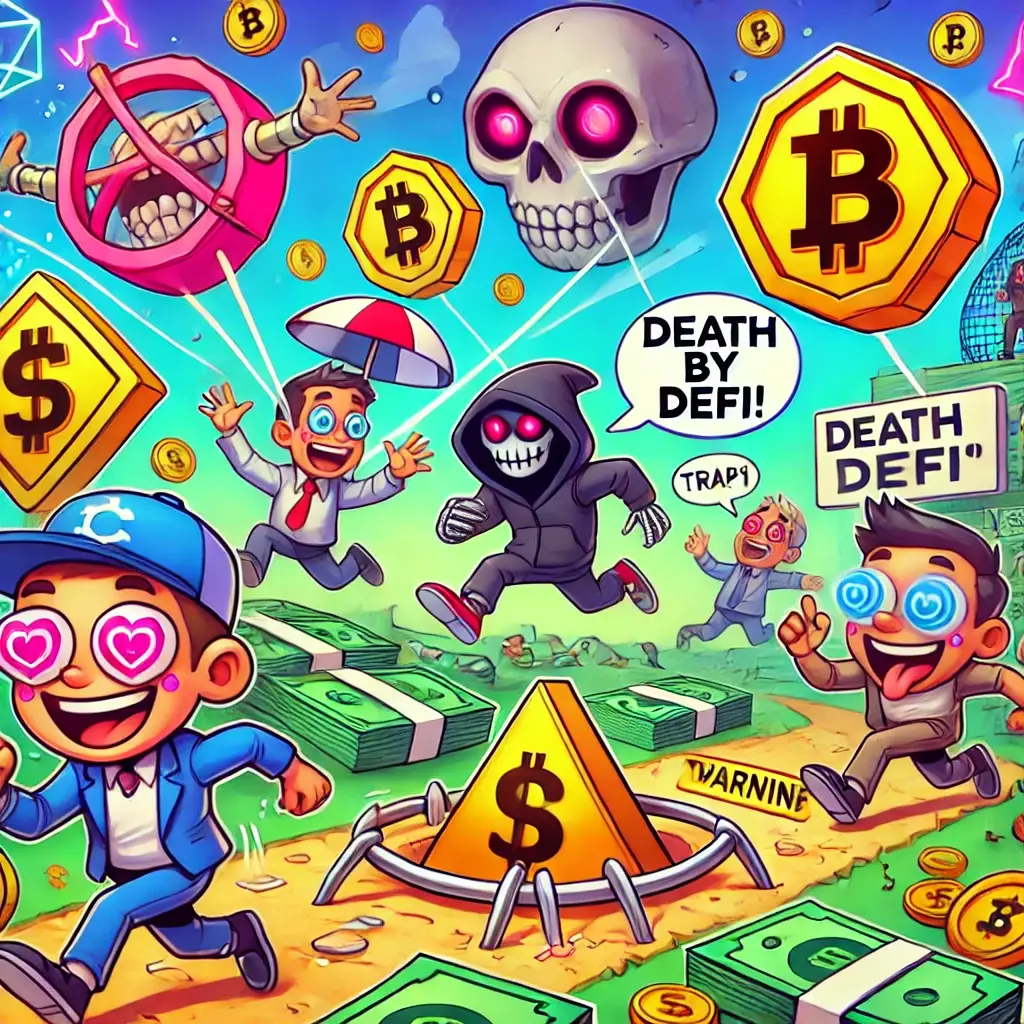In the wild, wild west of decentralized finance (DeFi), fortunes are made, lost, and sometimes obliterated overnight. But is the allure of quick riches worth the risk of financial annihilation? Welcome to the world where smart contracts aren’t always so smart, and the only regulation is the rule of "every trader for themselves."
The DeFi Boom: A Blessing or a Curse?
Decentralized finance has revolutionized the way we think about money, offering unparalleled access to financial services. But beneath the glittering promise of freedom from traditional banks lies a labyrinth of risks. Let’s break down the perils of this unregulated gold rush.
Smart Contracts, Dumb Decisions
Code Is Law (Until It’s Not)
Smart contracts are touted as the backbone of DeFi—self-executing agreements that run without human intervention. Sounds perfect, right? Not so fast. If the code contains bugs (and spoiler alert: it often does), your precious Ether could disappear faster than free pizza in an office kitchen.
Famous Fails
-
The DAO Hack: In 2016, a vulnerability in a smart contract drained $60 million worth of Ether.
-
Poly Network Breach: In 2021, hackers exploited vulnerabilities to swipe $600 million—although they weirdly gave most of it back. (Perhaps they felt guilty?)
Too Good to Be True? Probably Is
High Yields, Higher Risks
DeFi platforms often lure investors with promises of astronomical returns. However, these yields come with equally astronomical risks, ranging from rug pulls to outright Ponzi schemes.
The Anatomy of a Rug Pull
A rug pull occurs when developers launch a token, pump its price, and then vanish with investors’ funds. It’s the digital equivalent of inviting everyone to a party and stealing their wallets while they’re dancing.
-
Red Flags:
-
Anonymous developers
-
Unverified smart contracts
-
Overhyped marketing (If it feels like a used car commercial, run!)
-
No Regulators, No Recourse
Your Loss, Your Problem
Unlike traditional financial systems, DeFi operates without oversight. If something goes wrong—a hack, a scam, or a simple user error—there’s no FDIC to save you. Your money is as good as gone.
Scammers Galore
The lack of regulation makes DeFi a paradise for fraudsters. Phishing schemes, fake tokens, and clone websites are just the tip of the iceberg.
-
Common Scams:
-
Fake airdrops
-
Impersonation of legitimate projects
-
Pump-and-dump schemes
-
How to Avoid Becoming DeFi Roadkill
DYOR (Do Your Own Research)
-
Verify the team behind the project.
-
Check the smart contract’s audit report.
-
Understand the tokenomics (a fancy word for "how this thing works").
Diversify and Use Stop-Losses
Don’t put all your eggs in one digital basket. And yes, even in DeFi, you can set up stop-loss mechanisms to minimize your losses.
Stick to Reputable Platforms
While nothing is 100% safe, sticking to well-known DeFi platforms can reduce your risk. Think Aave, Uniswap, or Compound rather than "MagicMoonTokenSwap."
Conclusion: DeFi, Handle with Care
Decentralized finance is an exciting frontier, but it’s also fraught with pitfalls. Whether you’re chasing yield farms or staking in liquidity pools, remember: in DeFi, you’re your own bank—and your own risk manager. So, tread carefully, laugh at the absurdities, and always keep a healthy dose of skepticism.
After all, the only thing worse than Death by DeFi is explaining to your grandma why you lost her retirement fund to a coin named "ShibaRocket Inu."
